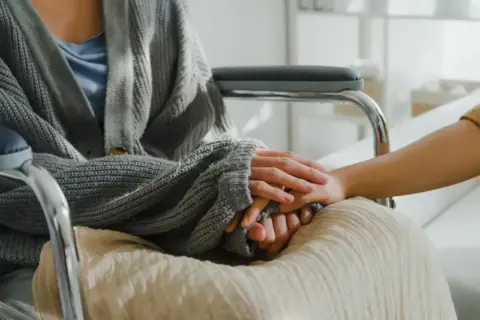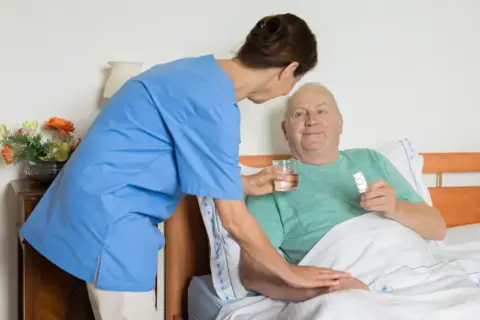How Long Can a Hospice Patient Live Without Water?
What to Know About Hydration in Hospice Care
When we’re faced with end-of-life scenarios, it’s normal to have lots of questions. Questions about hospice, respite care, and family caregiving are all commonplace during this time of transition and grief. However, few people are prepared for every aspect of a terminal illness. Many times, patients lose the ability to eat and drink, and their families and physicians must create a plan going forward. How to proceed when a patient can no longer hydrate themselves is complex and emotionally charged. Here’s what you need to know about hydration and hospice care.
Why Might a Hospice Patient Stop Drinking?
At Agape Hospice NW in Portland, OR, we’ve worked with hospice patients of all kinds. As the body begins to shut down, non-essential functions stop in an effort to conserve energy. The need for sustenance diminishes over time, including the need for water. Other reasons a patient may stop drinking include:
- Slowed Digestive System: As the digestive system slows down, the body has a hard time processing food and liquids. Hospice patients nearing the end may no longer feel thirst.
- Side Effects: Some medications and treatments used in palliative care can cause dry mouth, nausea, and loss of appetite, all of which may discourage a patient from drinking.
- Difficulty Swallowing: Difficulty swallowing, or dysphagia, is a common issue among hospice patients. The risk of inhaling drink into the lungs may deter people from consuming water.
- Emotional Considerations: The emotional and psychological aspects of facing the end of life can affect the patient’s desire to eat or drink. Feelings of depression, fear, or acceptance of their situation may impact eating habits.
How Long Can a Hospice Patient Live Without Water?
In general, the human body can survive around three days without water. However, this estimate varies significantly when we talk about hospice patients. People nearing the end of their lives expend very little energy and require less water to survive. Some of these individuals can live up to 10 days after they’ve stopped drinking. Keep in mind that how long someone can survive without adequate hydration is dependent on a wide range of factors.
What to Expect When Your Loved One Stops Hydrating
When a loved one stops drinking water, it can be difficult for families to comprehend. Nevertheless, it’s often an unavoidable part of end-of-life care. Remember that every person’s journey is unique. Some may pass away within hours of stopping water intake, and others may live for a few more days. Understanding this uncertainty can help families prepare for their loved one’s passing. During this process, hospice care professionals can step in to prioritize the patient’s comfort and dignity, as well as support the grieving family.
Get in Touch With Agape Hospice NW to Learn More
Refusing food and water is a personal decision, and families and caregivers should always respect the patient’s wishes. If the patient can no longer speak for themselves, a healthcare professional can serve as a guide for the next steps. The end of someone’s life is a terribly sad time, but when families understand what to expect, the grieving process is more manageable. Look to the team at Agape Hospice NW for further guidance on how to navigate end-of-life care.


